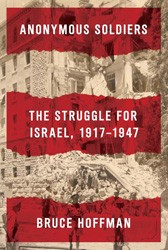By
– August 30, 2011
This is a cleverly titled collection of nine articles, several of which were originally published in academic journals. Using the Kishniev pogrom of 1903 as a starting and turning point, since it contributed to huge migration, the articles focus on points of tension and difference within the Jewish communities in the U.S. and Israel. The articles on the U.S. discuss the identities and experiences of such notables as the highly assimilated Felix Frankfurter and Arthur Hays Sulzberger, and less known figures like Rabbi Abraham Isaac Selmanovitz, who maintained a balance between tradition and a modicum of assimilation at a time when this was enormously challenging. Most of the articles dealing with Israel have not been previously published; they focus on cultural and political conflicts and tensions between tradition, modernity, and Zionism in an evolving society.
Susan M. Chambré, Professor Emerita of Sociology at Baruch College, studies Jewish philanthropy, social and cultural influences on volunteering, and health advocacy organizations. She is the author of Fighting for Our Lives: New York’s AIDS Community and the Politics of Disease and edited Patients, Consumers and Civil Society.





